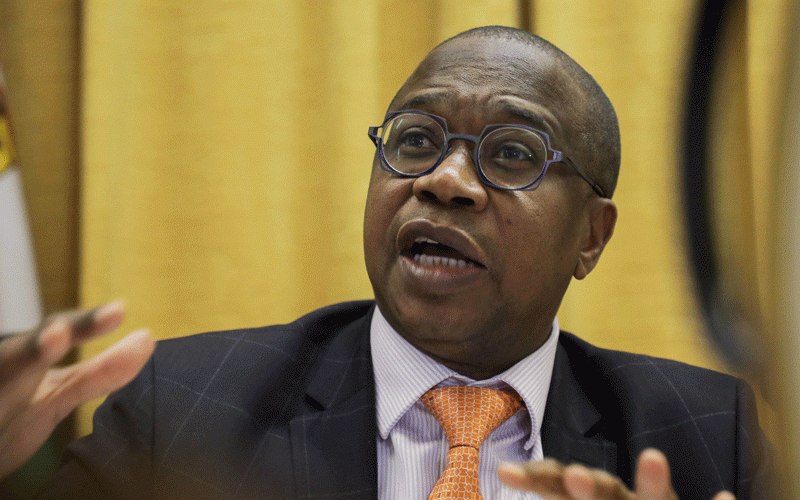
FINANCE minister Mthuli Ncube has pleaded for patience with the recently introduced Zimbabwe Gold (ZiG) currency amid an uproar from the public over the disruptions it has caused to transactions.
The Reserve Bank of Zimbabwe on Friday last week unveiled the ZiG to replace the local unit that had become moribund.
Authorities said the ZiG was backed by gold and foreign currency reserves as well as a basket of other minerals.
Addressing legislators in Parliament on Wednesday this week, Ncube pleaded with the public to be patient.
“Again, if you could be patient and bear with the Reserve Bank; they have really done their best,” Ncube said.
“It is not surprising that maybe one or two things did not happen as anticipated, and on time. It is just a complex issue, but I think that the public will understand.
“You have to print new money; you have to make sure the gold in our case is in place, the diamond is in place. There are just so many variables and I hope you will understand.”
Ncube pleaded with Zimbabweans to have confidence in the ZiG.
- Budget dampens workers’ hopes
- Govt issues $24 billion Covid-19 guarantees
- Letter to my People:They have no answers for Nero’s charisma
- ZMX to enhance farm profitability
Keep Reading
“As the government, we would want this to be acceptable, that citizens have confidence and you can only build that confidence if you communicate and explain how it works in simple language,” he said.
“We believe that educating the public about the design of the currency and how it has been put together will give them that level of confidence.
“I would like to urge members of the public to have confidence in ZiG and use it all the time. It is everyone’s currency, and we should be proud of it. After all, a country derives pride from its currency.”
Zimbabweans have been shut out of electronic banking platforms as some service providers struggled to complete reconfiguring their systems to ZiG.
RBZ chief John Mushayavanhu said this week that over 90% of the banking institutions and mobile bank service providers had successfully configured their systems and processes to ZiG from ZWL$, with banking services now being accessible for the convenience of the transacting public.
Some traders are also refusing to accept the Zimdollar notes despite authorities saying the local unit remains legal tender until April 30 when ZiG notes and coins will be released to the market.
Ncube, however, warned of a blitz against those rejecting the Zimdollar which will be in circulation until the ZiG comes into circulation on April 30.
“We are going to send out our law enforcement agency to make sure that these vendors are dealt with,” he said.
“It is illegal. Therefore, if it is illegal, then the law must take its course. I am also urging our law enforcement agency to move with speed to deal with this matter, we cannot allow it.”
Meanwhile, Zimbabweans yesterday expressed mixed feelings about the ZiG in a survey held on the streets of Harare.
Speaking to NewsDay, vendors, illegal foreign currency traders and wholesale shopkeepers said the delayed introduction of the ZiG had caused serious challenges for the transacting public.
Some traders have simply increased their prices by US$0,50 to avoid the inconvenience of the non-availability change.
Other traders were, however, accepting the Zimdollars but at about ZWL$10 000 for US$0,50 from less than US$5 000 a week ago.
NewsDay also gathered that some commuter omnibus operators were giving customers corn snacks for change.
A vendor who only identified herself as Tadiwa said they were facing the challenge of people refusing the Zimdollar.
She said they were suffering losses as some traders demanded as much as ZWL$20 000 for US$0,50.
Talent Maka, another vendor, said: “The introduction of the new currency has caused me to lose my money which was in the bank when they changed the RTGS to ZiG and I don’t even understand the rate they are using given that we can’t access our bank accounts.”
A Harare resident queried authorities' decision to introduce the ZiG.
“Why did he introduce the new currency in the first place before it was in circulation? As you can see now the people are facing difficulties ... now passengers are forced to pay US$1 for a distance that costs half the price,” said one resident.
Another vendor said: “We, as citizens and vendors, are confused as to why the new governor introduced the new currency.
“We have failed because we do not have the currency in circulation. The previous governor, John Mangudya also did the same last time, when he introduced Bond notes and coins.”
A commuter omnibus operator Nathan Masvon’a said their industry had not been affected by the current situation.
“The development has, however, been met with speculation but we are trying by all means to gather more information to understand how the new currency will be working,” he added.
An illegal foreign currency dealer Tatenda Gono said informal traders were bearing the brunt of the introduction of the new currency.
“The issue of the Zimdollar is mostly affecting the informal traders especially, but the introduction of the new currency is also good because we expect it to stabilise the economy,” she said.











